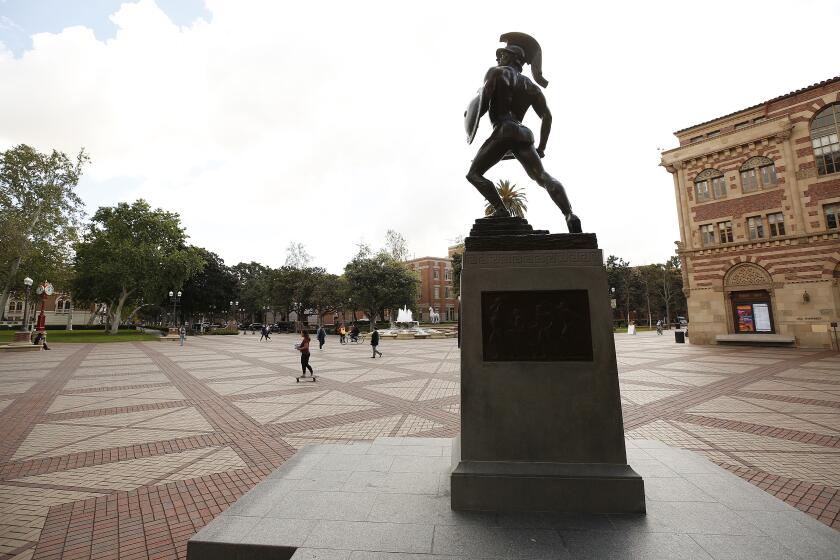Pride, and Twitter prejudice, for a Jane Austen fan in Britain
Who knew Jane Austen could be so polarizing?
Caroline Criado-Perez, a freelance journalist and feminist in Britain, led a petition drive that persuaded the Bank of England to put Austen’s visage on the back of the new 10-pound note that will be printed in 2017. Criado-Perez had argued, reasonably enough, that at least one piece of paper currency should bear the likeness of a woman not in the royal family (Queen Elizabeth II’s face is on the front of all the bills). I mean, the U.S. Treasury put a woman on the ... err, in Canada they have ... oh, never mind.
Anyway, Criado-Perez was celebrating the bank’s announcement Wednesday when the Twitter floodgates opened and deluged her with rape threats and other abusive tweets. She estimated that she received about 50 threats an hour over one 12-hour stretch. After she reported the threats to Twitter and the police, the latter detained a 21-year-old man in Manchester on suspicion of harassment. And yet the rape-themed tweets continued, suggesting that the arrest wasn’t much of a deterrent.
An online petition drive quickly gathered more than 66,000 signatures demanding that Twitter make it easier for people to report abusive tweets. Such a feature already exists in the Twitter client made by TweetDeck, which Twitter acquired two years ago, and in some mobile iterations, but it isn’t built into Twitter’s site. On Monday, the company said that it would bring such a feature soon to its website and more mobile clients.
That’s all well and good, but Criado-Perez’s case -- which, sadly, isn’t unique -- raises a couple of other tough questions.
The social silos online make it easy to rally the troops for a cause, good or bad. That’s why a single abuser can quickly become a gang of them. Do those victimized by a mass campaign of abuse have to block and report all of the participants individually? I suspect the answer is yes, unless the victims want to cut themselves off entirely from those they aren’t following. After all, Twitter is set up to let people insert themselves into anyone’s feed (or rather, the “mentions” feed) just by typing their user name into the tweet. The same is true of Facebook.
Second, who decides what’s abusive and what isn’t? In the case of a rape threat, that’s not a close call. But trolling comes in all sorts of flavors online, including legitimate criticism expressed in the wrong way. What’s the right standard? Personally, I like the idea of requiring that something be objectively offensive to a reasonable person before imposing a penalty, but even that standard leaves room for interpretation.
Going too far in one direction could result in people being sanctioned simply for being critical or expressing an unpopular opinion. Going too far in the other direction -- well, that’s where Twitter is today.
Free-speech absolutists might argue that the right response to bad speech is good speech. Criado-Perez illustrated this by retweeting some of the dreck thrown her way and commenting on it. But the folks who were using Twitter to broadcast threats to commit unnatural acts upon her probably were born without shame in their DNA. And in fact, just getting noticed may have been all the reward they were seeking. So that’s probably not a sufficient remedy, even though it seems like an appropriate one.
For its part, any platform as successful as Twitter will struggle with the scale of the challenge presented by Criado-Perez’s abusers. It can try to automate the job of identifying truly abusive statements, but some portion of the work will inevitably require human readers to make judgment calls. The more popular the platform, the more expensive that becomes.
Nevertheless, Twitter can’t afford to become the distribution medium of choice for hate; that would simply drive people to other platforms with higher signal-to-noise ratios. Creating a simpler way to report abuse is just the first step for Twitter. The test ultimately will be how ably it responds to those reports.
ALSO:
C’mon, disposable diapers are not a ‘need’
What Pope Francis said, and meant, about gays
No, Howard Dean, Obamacare doesn’t ration Medicare
Follow Jon Healey on Twitter @jcahealey and Google+
More to Read
A cure for the common opinion
Get thought-provoking perspectives with our weekly newsletter.
You may occasionally receive promotional content from the Los Angeles Times.











